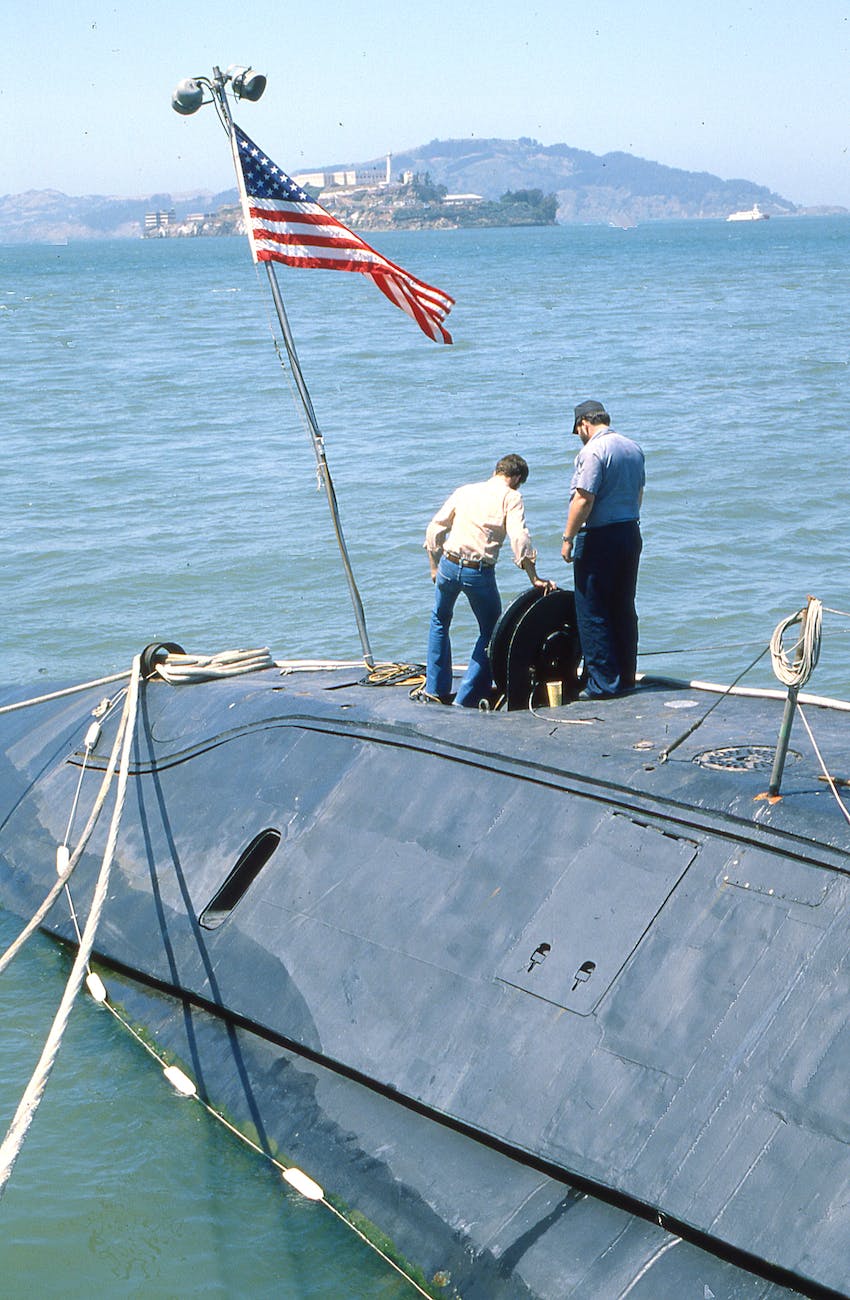- How does the author’s use of “narrated time” draw out and emphasize certain events or themes in the narrative?
The Bible’s historical thrall over a sizeable section of the Earth’s population is due in large part to its effectiveness as a story. The Hebrew Bible text was originally delivered as an oral tradition and its compelling nature was constructed by the authors use of suspense in the narrative. Control over narrated time (the unfolding sense of internal time within the narrated events) through the revelation of simultaneous pieces of information via characters within the story, rather than through a dry narration outside of the events themselves, creates suspenseful immediacy (Bar-Efrat 1989:144). In 2 Samuel 11: 11 the reader, ostensibly, hearing a story about adultery and misuse of kingly power, is also informed of the whereabouts of the ark of the covenant, and the alliance of the tribes of Israel and Judah, under David, at this point in time.
We are told in the beginning, that it is spring and a time for kings to lead their armies to war but that David has remained in Jerusalem, and has other springtime activities on his mind (2 Samuel 11). The importance of David creating an heir for the throne is highlighted here. The use of the messenger in the narrated text in 2 Samuel 11; 14-25, allows the author to convey several pieces of information without slowing the pace of events down and perhaps losing the interest of the listener, or reader.
- Why does the author make a special point of specifying Bathsheba’s purification from her “uncleanness”?
The author is drawing attention to Bathsheba’s state of fecundity, as most scholars agree that the “uncleanness” referred to is a woman’s menses, meaning that, as she is bathing she has completed her period of bleeding. Lillian Klein, in her book, From Deborah to Esther: Sexual Politics in the Hebrew Bible, indicates that there seems to be some unclarity about if there is a second purification, unrelated to menses. Klein postulates, that, as Bathsheba is not blamed in the Bible for her adultery but rather the author’s focus, in 2 Samuel 12, is on God’s condemnation of David, through Nathan, and that the further purification is highlighting her preparedness for procreation and this accordingly absolves her of wrong intent (Klein 2003:57).
- Examine 2 Samuel 11:6-13. What is happening here? What motive lies behind David’s instructions?
The text reveals that David is attempting to create a situation where Bathsheba’s pregnancy would be passed off as a result of her husband, Uriah the Hittite’s copulation with her, rather than his own adulterous behaviour. However he is frustrated in this by the loyalty and devotion shown by Uriah to him (2 Samuel 9-11), as he refuses to return home to his wife and stays close by the side of his lord as a true servant to David, the Ark, Israel and Judah (Finkelstein 2006;107-8). David attempts further to break down Uriah’s resistance by getting him drunk, but even in a state of intoxication Uriah remains loyal to his service to the king (2 Samuel 13).
- 2 Samuel 11: 18-25 lingers on David’s potential reaction to fatalities sustained in the battle. Why is this? What implications does this have for David’s moral character in the light of his actual reaction to the fatalities?
In this account of the narratives between Joab and the messenger, and David and the messenger, the text conveys David as a king, primarily, concerned with his own selfish needs and is callous toward those risking and, indeed, sacrificing their lives on his behalf. Shimon Bar-Efrat in his, Narrative Art in the Bible, uses the phrase “ morally depraved” to describe David’s behaviour as revealed by the author of 2 Samuel 11: 18-25 (Bar-Efrat 1989:151). The author seems to be highlighting David’s focus on his own human desires and thus showing him to be no true servant of the Lord.
- What does the author want us to think about David? Give your reasons with evidence from the text.
The author of 2 Samuel 11-12 sets up contrasting positions that reflect badly upon David, in the beginning we are informed by the text that, “ In the spring when kings go off to war, David sent Joab out…the whole Israelite army… But David remained in Jerusalem” (2 Samuel 11). Not only does David stay safely at home, when kings should be leading their armies, but he also commits adultery with one of his soldier’s wives, and again the narrative compares the loyalty of the cuckolded husband with the devious and ruthlessly, deadly behaviour of David (Smith 2009:121)(2 Samuels 11: 6-25):
“When David was told Uriah did not go home…”Haven’t you come just come home from a distance? Why didn’t you go home? Uriah said to David, “The ark and Israel and Judah are staying in tents, and my master Joab and my lord’s men are camped in open fields. How could I go to my wife? As surely as you live, I will not do such a thing!” ( 2 Samuels 11:10-11).
Once again David is shown up by the exemplary behaviour of his subject and the equally despicable actions of his own. The relationships between the various characters are also highlighted by this piece of the text – Uriah as Joab’s armour bearer; Joab as David’s general and Bath Sheba as Uriah’s wife – and the affect David’s actions will have on all of them (Smith 2009:123).
David is next seen to be asking falsely of Uriah, how the war is going, when in reality he does not care about the individual lives of his soldiers, as revealed by his statement to the messenger for Joab, “Don’t let this upset you; the sword devours one as well as another” (2 Samuels 11:25).
In 2 Samuels 12 the prophet, Nathan, is sent by the Lord to deliver his message of condemnation about David’s behaviour. Nathan by means of a parable allows the author to shine the spotlight on the greedy and non-divine like behaviour of David. The poor man of the story is Uriah, and he has just one wife, whereas the rich man of the parable is David, and he has a whole harem, inherited from Saul – despite this he still covets and takes the poor man’s wife (2 Samuels 12; 4).
According to Yitzhak Berger, in his published article, “Ruth and the David Bathsheba Story: Allusions and Contrasts”, it is David’s “lack of empathy” which sets him so far apart from all those he is unfavourably compared to (Berger 2009:437). I would say that the author wishes to impart the fact that David has lost respect for the responsibilities and piety demanded of his position, he is clearly saying that kings, or warlords, are not gods (Hutton 2011:1).
BIBLIOGRAPHY
Bar-Efrat, Shimon, Narrative Art in the Bible, Almond Press, Sheffield, 1989.
Berger, Yitzhak, “Ruth and the David Bathsheba Story: Allusions and Contrasts”, Journal for the Study of the Old Testament, Vol 33, 2009.
Cushman, B.W.. “The politics of the royal harem and the case of Bat-Sheba” Journal for the Study of the Old Testament , 30:3 , 2006.
Finkelstein, Israel; Silberman, Neil Asher. “Murder, lust, and betrayal” in David and Solomon: In Search of the Bible’s Sacred Kings and the Roots of the Western Tradition , Finkelstein, Israel; Silberman, Neil Asher , 2006.
Halpern, Baruch, David’s Secret Demons: Messiah, Murderer, Traitor, King , Halpern, Baruch , 2001.
Ho, Craig Y. S. “The stories of the family troubles of Judah and David: A study of their literary links” Vetus Testamentum , 49:4 , 1999.
Hutton, Jeremy. “Review: ‘The Demise of the Warlord: A New Look at the David Story’ by Daniel Bodi” Review of Biblical Literature , :29/12/2011 , 2011.
Klein, Lillian R. “Bathsheba revealed” in From Deborah to Esther: Sexual Politics in the Hebrew Bible , Klein, Lillian R. , 2003.
Holy Bible – New International Version, Zondervan Corp, International Bible Society, Colorado Springs, 1996.
Mazar, Benjamin. “The military elite of King David” in Early Biblical Period: Historical Studies , Mazar, Benjamin , 1986.
Smith, Richard G.. “Reading 2 Samuel 11-12 as the corruption of justice and righteousness: The Uriah affair and the fall of Rabbah” in The Fate of Justice and Righteousness During David’s Reign: Rereading the Court History and its Ethics According to Samuel 8: 15b-20:26 , Smith, Richard G. , 2009 , 120-145












